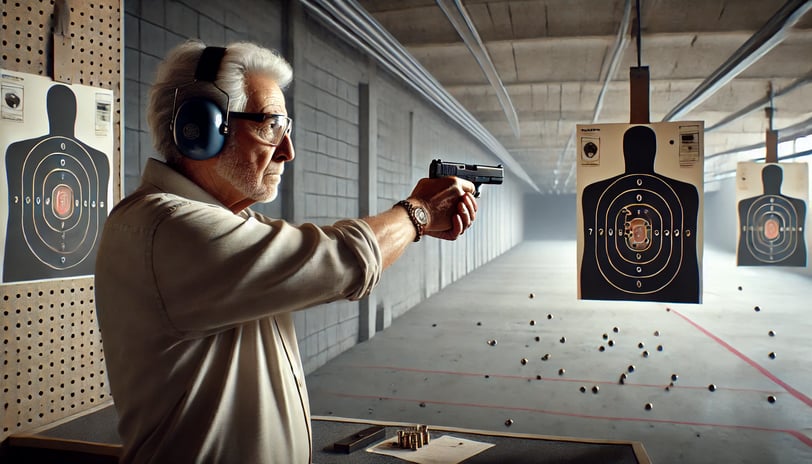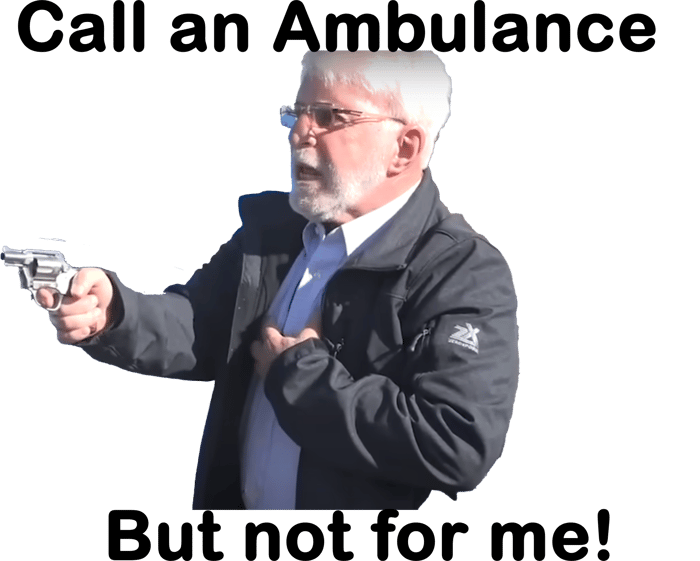Grab your fan gear at discounts!
A Guide to Firearm Safety and Self-Defense Training for Seniors
As we age, feeling secure and confident in our personal safety becomes increasingly important. For many seniors, firearm safety and self-defense training offer peace of mind, practical skills, and a sense of empowerment. Organizations like the NRA, alongside others, provide tailored training programs to meet the unique needs of older adults. Here’s a comprehensive guide to the classes available and what seniors should consider when embarking on this journey.
Mel Schwartz
1/19/20252 min read


What Firearm Safety and Self-Defense Classes Are Available for Seniors Through the NRA?
The National Rifle Association (NRA) offers a range of firearm safety and self-defense training programs suitable for seniors. Here are a few key options:
NRA Basic Pistol Shooting Course
This beginner-friendly class teaches firearm safety fundamentals, handgun mechanics, and live-fire practice.
Seniors can learn at their own pace through in-person training or blended programs that combine online coursework with hands-on sessions.
*NRA Defensive Pistol Course
Ideal for self-defense preparation, this class focuses on situational awareness, defensive shooting techniques, and handling high-pressure scenarios.
NRA Refuse to Be a Victim® Program
While not strictly a firearms course, this program focuses on personal safety strategies, including home security, avoiding dangerous situations, and risk reduction.
Customized Training for Seniors
Many NRA-certified instructors tailor courses to suit the needs of older adults, accounting for physical limitations and comfort levels to ensure a positive and accessible experience.
Why Should Seniors Consider Firearm Safety and Self-Defense Training?
Empowerment & Confidence
Training allows seniors to take control of their personal safety, reducing feelings of vulnerability, especially for those living alone.
Accident Prevention
Proper training helps prevent firearm mishandling, ensuring that seniors feel safe and secure with their firearms.
Physical and Mental Benefits
Learning firearm skills can improve focus, coordination, and mental sharpness—critical areas for maintaining independence in older age.
Increased Safety Awareness
Self-defense training emphasizes situational awareness, providing seniors with the tools to identify and avoid potential threats before they escalate.
Are There Other Organizations or Resources Offering Similar Classes?
Beyond the NRA, several organizations and local resources provide self-defense and firearm safety training for seniors:
USCCA (United States Concealed Carry Association)
Offers concealed carry and home defense classes tailored to all age groups, including seniors. They also provide online resources like video tutorials and legal education.
Local Gun Ranges & Community Centers
Many gun ranges offer introductory classes specifically for seniors, providing hands-on practice and a supportive learning environment.
Senior centers may partner with local instructors to provide free or low-cost safety training.
AARP-Sponsored Safety Workshops
AARP often hosts personal safety seminars for older adults, though they may not focus exclusively on firearms.
AARP does not support 2A issues and firearms and may only provide awareness courses
This organization provides personal safety and firearm training tailored to women, including female seniors.
What Tips or Considerations Should Seniors Keep in Mind When Choosing a Class?
To make the most of firearm safety and self-defense training, seniors should keep the following in mind:
Instructor Qualifications
Look for instructors certified by trusted organizations like the NRA or USCCA. Ensure they have experience working with seniors and prioritize safety and patience.
Class Size and Environment
Smaller classes provide more personalized attention, which is especially helpful for beginners.
Choose a welcoming, non-intimidating environment where you feel comfortable asking questions.
Physical Considerations
Select a class that accommodates physical limitations, such as reduced hand strength or limited mobility. Many instructors offer adaptive techniques for seniors.
Course Format
Decide whether you prefer in-person training, online lessons, or a combination of both. For live-fire practice, ensure the class provides safety equipment and expert supervision.
Legal Awareness
Make sure the class covers your state’s firearm ownership laws, concealed carry regulations, and self-defense rights.
Final Thoughts
Firearm safety and self-defense training can be an invaluable investment for seniors looking to boost their confidence, independence, and security. Whether you choose a course through the NRA, USCCA, or a local provider, the key is to find a program that meets your unique needs and comfort level.
By prioritizing safety, education, and practical skills, seniors can take charge of their personal safety and feel empowered in their daily lives.
For more resources and guidance, visit Call an Ambulance to learn how to take the next step toward personal safety and preparedness.
Merchandise
Shop exclusive fan gear and collectibles today!
Support
Connect
fanmail@callandambulance.com
+1 (702) 760-5445
© 2025. All rights reserved.
